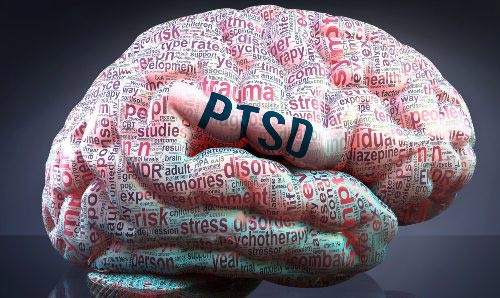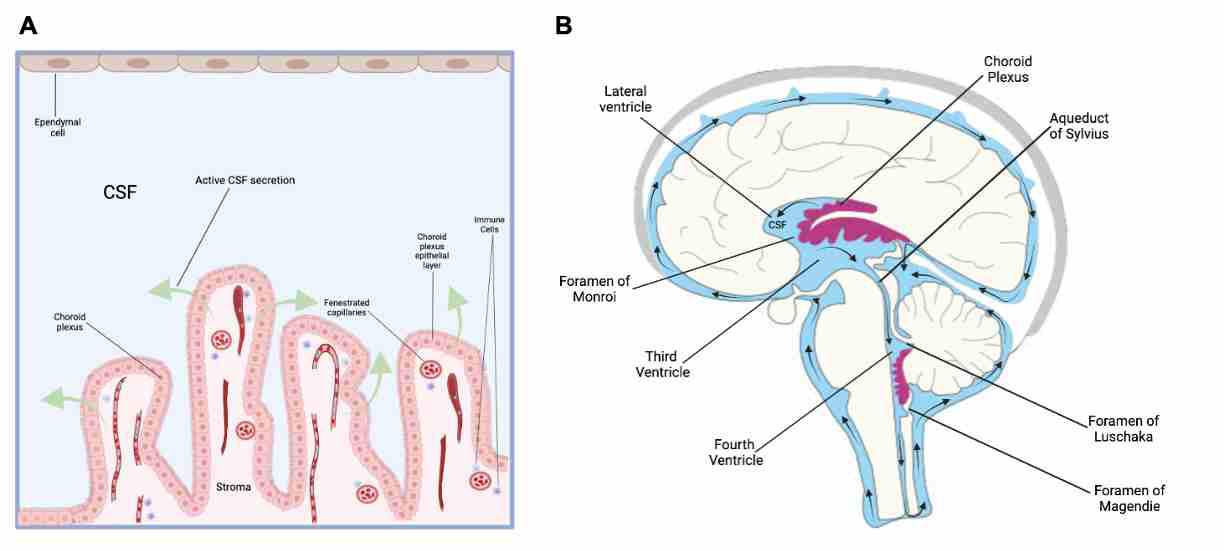University of Manchester – Harvard Global Research Network
This is a joint project between the Humanitarian and Conflict Response Institute (HCRI) (shared by the Faculty of Humanities and Faculty of Biology, Medicine and Health, FBMH) and Harvard Medical School (HMS). The aim of this project is to develop a global research network focusing on the choroid plexus (CP) in relation to neurodevelopment and the pathobiology of psychiatric illness. Specifically, it is envisioned that the HCRI will serve as a nexus for co-creative research that brings knowledge from the humanities (ie social scientists) and medicine (ie biomedical and clinical scientists) together for better global health.
Background

Individuals in humanitarian settings are at increased risk of experiencing trauma, which can lead to post traumatic disorder (PTSD). PTSD is a leading cause of disability worldwide, estimated to account for around 3 million disability-adjusted life years, and is associated with a number of mental and physical health conditions.
In this context, anomalies in the CP, a highly vascularised ‘frondlike’ structure lining the four ventricles in the brain, have been linked to trauma exposure. Beyond playing a central role in cerebrospinal fluid (CSF) production - which facilitates nutrient transport and removes metabolic waste from the brain - a growing body of empirical evidence has linked the CP to physiological and neurobiological processes. These include inflammation, leukocyte trafficking, circadian rhythm, and cognition as well as modulation of the gut brain-axis.
In recent years, advances in neuroimaging and molecular biology techniques alongside increasingly sophisticated animal models have played an integral role in understanding how the CP-CSF system evolves during brain development. In this context, anomalies in the CP-CSF system have been linked to various brain disorders ranging from hydrocephalus and cerebral folate deficiency to schizophrenia and Alzheimer’s disease. This project places an emphasis on better understanding the neural correlates of the CP in relation to psychiatric illness as a result of trauma related events.

Fig 1. The ChP-CSF system. (A) The ChP consists of CPE that surround a core of capillaries and connective tissue. (B) The ChP is located in each ventricle in the brain and secretes CSF which flows from the lateral to the 3rd and 4th ventricles. (figures from Bitanihirwe et al., In review MoI Pysch 2022).
About
The project will deliver core training ranging from direct exposure to evidence-based research (e.g., developing systematic reviews), to translational neuroscience (e.g., behavioural studies using rodents, neuroimaging, stem cell biology, neuroanatomy, electrophysiology and molecular biology) and clinical research (e.g., clinical assessments, neuroimaging, blood-biomarkers).
The diversity of research expertise at the HCRI and HMS is vast, including but not limited to humanitarians, clinicians, public health specialists, as well as clinical, basic, and translational neuroscientists. This will allow for unique research projects and collaborations to be established and the network to evolve.
One area which this collaboration is aiming to develop, via funding a PhD project, is understanding the impact of prenatal maternal stress and corticosteroid exposure during pregnancy on offspring’s neuroanatomy and neurocognition.
People
- Dr. Byron Bitanihirwe – Lecturer in Global Health, HCRI
- Dr. Paulo Lizano - Assistant Professor of Psychiatry, Harvard Medical School; Division Chief of Translational Neuroscience, Beth Israel Deaconess Medical Center
- Dr. Tsung-Ung Woo - Assistant Professor of Psychiatry, Harvard Medical School
- Dr. Michael Harte – Professor in Neuropsychopharmacology, FBMH and B-Neuro
- Dr. Rebecca Elliott – Professor of Neuroscience and Experimental Psychology, FBMH
- Dr. Paul Dark – Research Professor of Humanitarian and Conflict Response and Chair in Critical Care Medicine
- Dr. Jaleel Miyan – Senior Lecturer in Neuroscience, FBMH
- Dr. Clemente Garcia-Rizo – Associate Professor of Psychiatry, University of Barcelona
- Dr. Derrick Ssewanyana -Post-Doctoral Fellow, University of Toronto
- Dr. Roos Vandenbroucke - Associate Professor, University of Ghent
- Professor Norman Saunders - Monash University
- Professor Martin Reuter - DZNE, Germany
- Professor Nanna MacAulay - University of Copenhagen
- Dr. Laura Pellegrini - University of Cambridge
- Dr. Paola Perin - Assistant Professor of Physiology, University of Pavia
- Dr. Vladimir Korzh - Senior Staff Scientist, International Institute of Molecular and Cell Biology in Warsaw
- Professor Muthuraman Muthuraman - Neural Engineering with Signal Analytics and Artificial Intelligence, University of Würzburg
News and publications
- Deconstructing the functional neuroanatomy of the choroid plexus: An ontogenetic perspective for studying neurodevelopmental and neuropsychiatric disorders – Article in Molecular Psychiatry
- Current methods and techniques for the study of choroid plexus and cerebrospinal fluid – A methods collections for JoVE
More news and publications will be added as the project progresses.
Contact
For further information on the project, please contact:
byron.bitanihirwe@manchester.ac.uk or plizano@bidmc.harvard.edu
